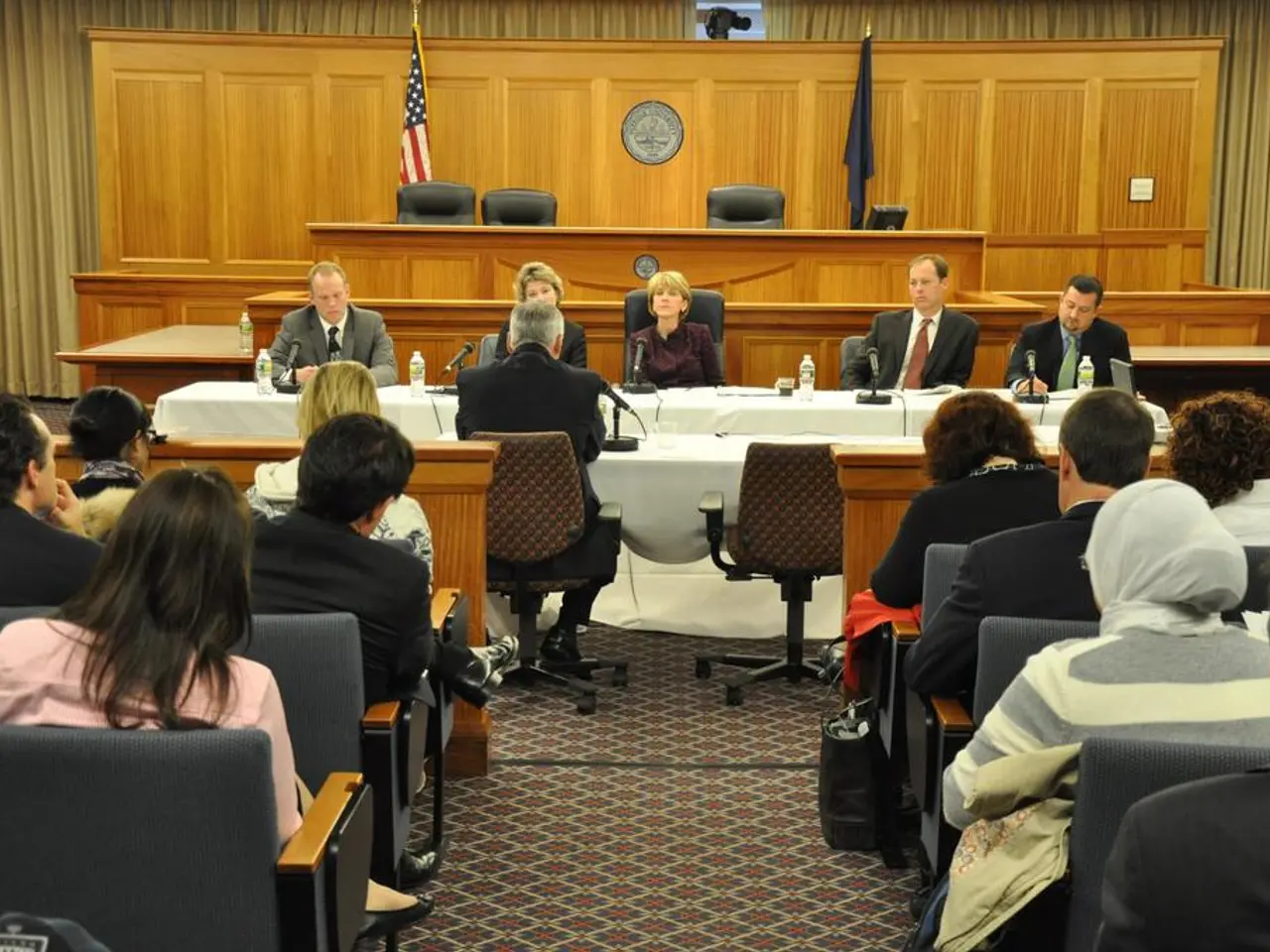Increasing Tariff Harmonization
German Government Proposes Tariff Loyalty Act to Counter U.S. Tariffs
The German federal government has proposed a new law, known as the "Law on the Modernization and Digitalization of the Fight Against Black Work," which includes the "Tariff Loyalty Act." This legislation aims to counteract the impact of escalating U.S. tariffs on German exports.
The Tariff Loyalty Act is designed to promote loyalty among German businesses to domestic value chains and tariff-aligned trade partners. By encouraging firms to prioritize sourcing and production within Germany, the EU, and other countries aligned with Germany’s trade policy, the law seeks to shield German companies from the financial strain and market uncertainty generated by U.S. President Trump's tariff policies.
Key details of the Tariff Loyalty Act include:
- Encouraging German firms to source and produce within Germany or the EU and other countries aligned with Germany’s trade policy to avoid punitive tariffs.
- Offering possible incentives or regulatory support to shift supply chains away from the U.S. tariff impact zone.
- Addressing the economic risks caused by the 30% tariffs imposed by the U.S. on EU imports effective August 1, 2025, which have hit German exporters significantly, especially auto manufacturers.
The reaction from businesses and unions is mixed but predominantly cautious and critical. Many businesses express concern about the financial burden tariffs place on exports and foresee challenges in quickly restructuring supply chains. Unions and workers’ representatives, on the other hand, emphasize the risks to jobs if companies fail to adapt or if costs rise substantially.
The business community calls for clearer, stable trade relations and fears that tariff-related policies may increase bureaucracy and costs, thereby harming competitiveness. The Tariff Loyalty Act will only apply to contracts worth more than 50,000 euros.
The law will improve digital networking and data exchange with the police and customs, allowing the FKS to independently identify illegal employees and criminals. The FKS will be able to prosecute cases of fraud independently.
The hairdressing and cosmetics industry has been included in the catalog of branches particularly affected by black work. The Industrial Union of Construction, Agriculture, and Environment praises the project, but criticizes that the agricultural sector is not yet included in the catalog of risk branches for black work.
The German federal cabinet has approved a draft law, known as the Tariff Loyalty Act. The law is expected to be debated in the Bundestag after the parliamentary summer recess and passed by the end of 2025, with the approval of the Bundesrat.
The Central Association of the German Hairdressing Trade supports this inclusion, while criticism comes mainly from business associations such as the Federal Association of German Employers' Associations (BDA) and the German Industry and Commerce Association (DIHK). The IG Metall, a union, has welcomed the project and called for its implementation without loopholes.
Since the beginning of the month, over 700 highly qualified young professionals have been recruited for the FKS. The working conditions include maximum working hours and breaks, Christmas bonuses, and vacations. Union chief Christiane Benner states that it is only fair and ensures fair competition if there are clear rules for paying the people who maintain infrastructure, expand railways, equip schools and kindergartens, and supply materials for them.
The BDA and DIHK criticize the potential increased bureaucratic burden and the law's alleged negative impact on economic recovery and cost-effectiveness. The number of FKS employees is expected to grow to around 11,000 by 2029.
[1] [Source for the impact of U.S. tariffs on German exporters] [2] [Source for the impact of U.S. tariffs on the auto industry] [3] [Source for the losses and uncertainty of automakers due to tariffs] [4] [Source for the recruitment of 700 young professionals for the FKS] [5] [Source for the mixed reaction from businesses and unions]
- Amid the proposed Tariff Loyalty Act, German businesses and unions are debating its potential impact on both domestic value chains and international politics, as policy-and-legislation related to the act aims to counter the consequences of U.S. tariffs on exports and to promote tariff-aligned trade partnerships.
- The German government's aim to counteract the financial strain and market uncertainty generated by U.S. President Trump's tariff policies with the implementation of the Tariff Loyalty Act highlights the intricate relationship between politics, the economy, and general-news, as the legislation seeks to alter the strategic sourcing and production decisions of German companies.





